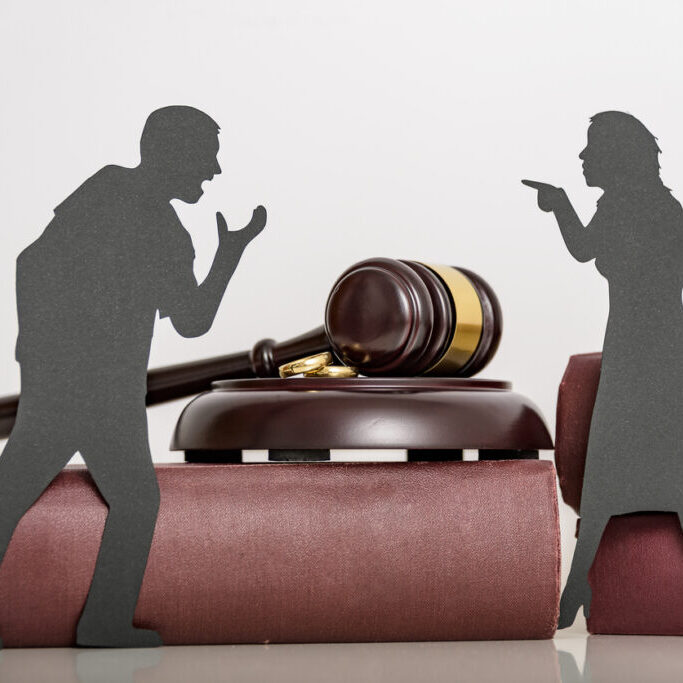Insights < BACK TO ALL INSIGHTS
A Tale of Two Courts
A Tale of Two Courts
By: James Trusty
Much has been made of the contemptuous and combustible combination of former President Trump and Manhattan Supreme Court Judge Arthur Engoran, the trial judge in the New York “fraud” case that imperils Trump’s ability to do business in New York. This week we got a glimpse into a different proceeding involving an extremely opinionated subject of an accusation—District Attorney Fanni Willis—presided over by Fulton County Superior Judge Scott McAfee. The two judges’ profoundly different approaches to surprisingly similar challenges are a study in judiciousness, and a good reminder of how our criminal justice system’s participants can either promote or damage the respect that is so important in keeping faith in the legal institution.
The similarity of the challenge for these two judges is a shocking concept to say out loud. In one case, a strong-willed individual who is the center of the controversy stormed in and out of court, showed no real respect for the judge, and paid no heed to objections or judicial warnings to “just answer the question.” In the other case—well, the exact same thing.
In anti-Trump quarters, there was much criticism of his disrespect for Judge Engoran, and the judge himself made it abundantly clear that he did not like Mr. Trump (nor his attorneys), frequently yelling and threatening the former president while sending news clippings of himself to old chums like a family newsletter. When President Trump raised his volume, so did Judge Engoran.
This week provided court-watchers with another fiery hearing involving President Trump, but this time with the local District Attorney, Ms. Willis, on the defensive for her selection of her boyfriend to serve as lead Special Prosecutor in the Georgia RICO case. Willis’ underlings opened the hearing with renewed demands to quash the subpoena for Ms. Willis’ testimony, to dismiss the defendants’ motion without more, and to dramatically turn the hearing into a sanctions hearing against the attorney who dared cross Ms. Willis. Judge McAfee declined the demand, and he proceeded to calmly and clearly steer a ship full of contentious lawyers through a long couple of days of testimony and seemingly endless objections. After Mr. Wade’s testimony on Thursday, Fani Willis stormed into the courtroom and placed herself on the witness stand, angrily announcing that the DA’s office was no longer fighting the subpoena for her testimony. She proceeded to find any and every opportunity to call Ms. Merchant, the attorney who authored the initial motion, a liar. She made speeches instead of answering questions, and she ignored objections as well as the judge. Willis was a wild mix of angry, defensive, and entertaining—professing her love of Gray Goose vodka, describing her improbable cash reimbursement relationship with Wade, and even announcing she “will not emasculate a black man” before clearly implying that Wade could not have had sex with her during a period for which he had cancer. When a recess was called, only one person on my tv screen did not rise to their feet as the traditional show of respect for the judge leaving (or entering) the courtroom, Fani Willis.
For the pundits who blasted Trump for his belligerence towards Judge Engoran, somehow their zeal for courtroom decorum flickered out this week. Note that Willis has a higher obligation to behave herself in the proceedings, as she is an officer of the court. So yes, the frustrated New York real estate mogul certainly went toe-to-toe with Judge Engoran, likely in a quite counter productive fashion. But Willis’s behavior was no less disrespectful, particularly coming from a person in her position of legal authority.
So how did Judge McAfee react to this onslaught of unprofessionalism? He gently warned the witness a couple of times, and he often urged the cross examiners to find tighter ways to ask their questions so Willis could not take off with her speeches. In short, he did not let his ego force him to rise to the emotional bait. As a result, all of the lawyers in the room showed deference and respect to the Court throughout long and bitter days of fighting.
How any individual views figures like President Trump or Fani Willis, as well as the judges dealing with their testimonial grenades, is a Rorschach test that mostly reflects affection or disaffection for the witness long before he or she took the witness stand. But no matter how Judge McAfee rules on this important motion or how he conducts himself during any trial, his conduct this week was a powerful example of judiciousness. Robes do not guarantee wisdom or a calm temperament, and even though the respect institutionally afforded to a black robe is substantial, the person wearing that judicial uniform must work hard every day to earn the Honor of wearing it. Faith in our judicial system—very much at issue with these high-profile prosecutions of President Trump—starts, and perhaps ends, with the behavior of the presiding judge.





